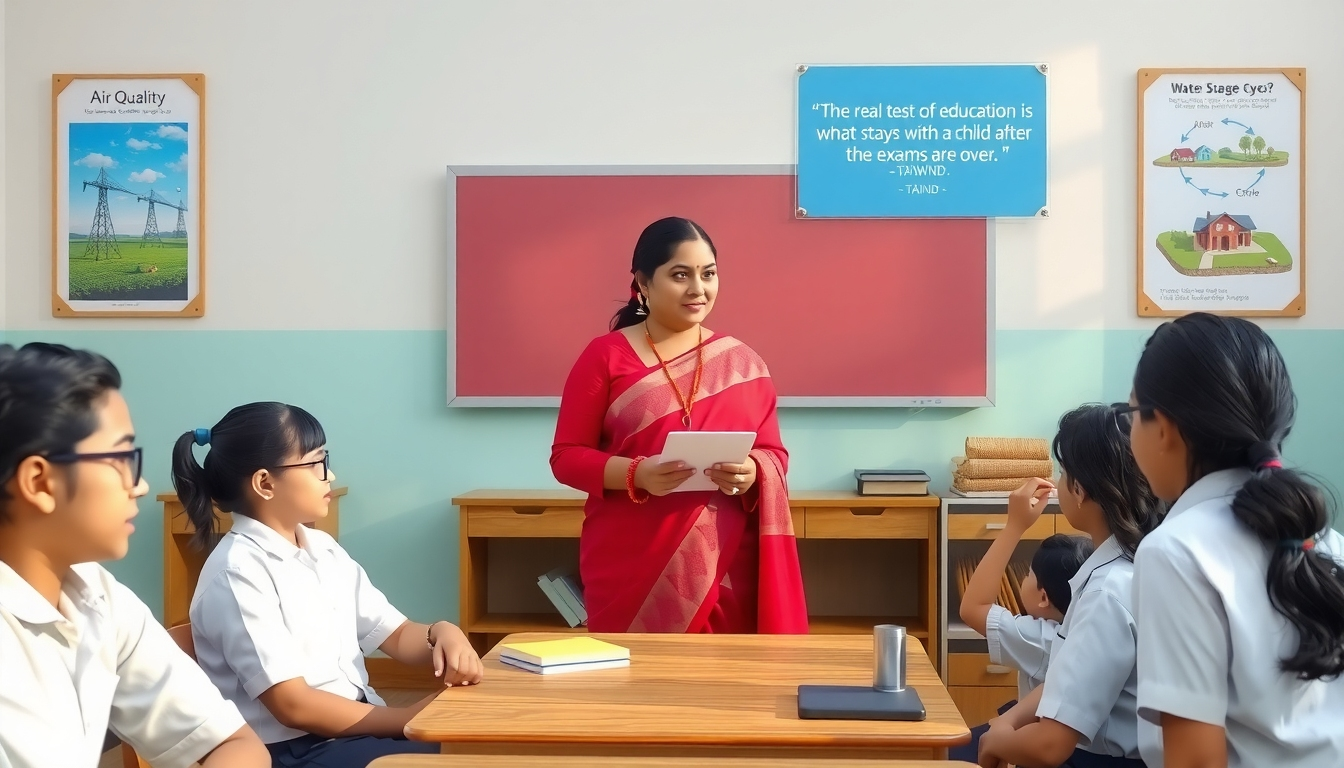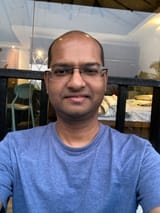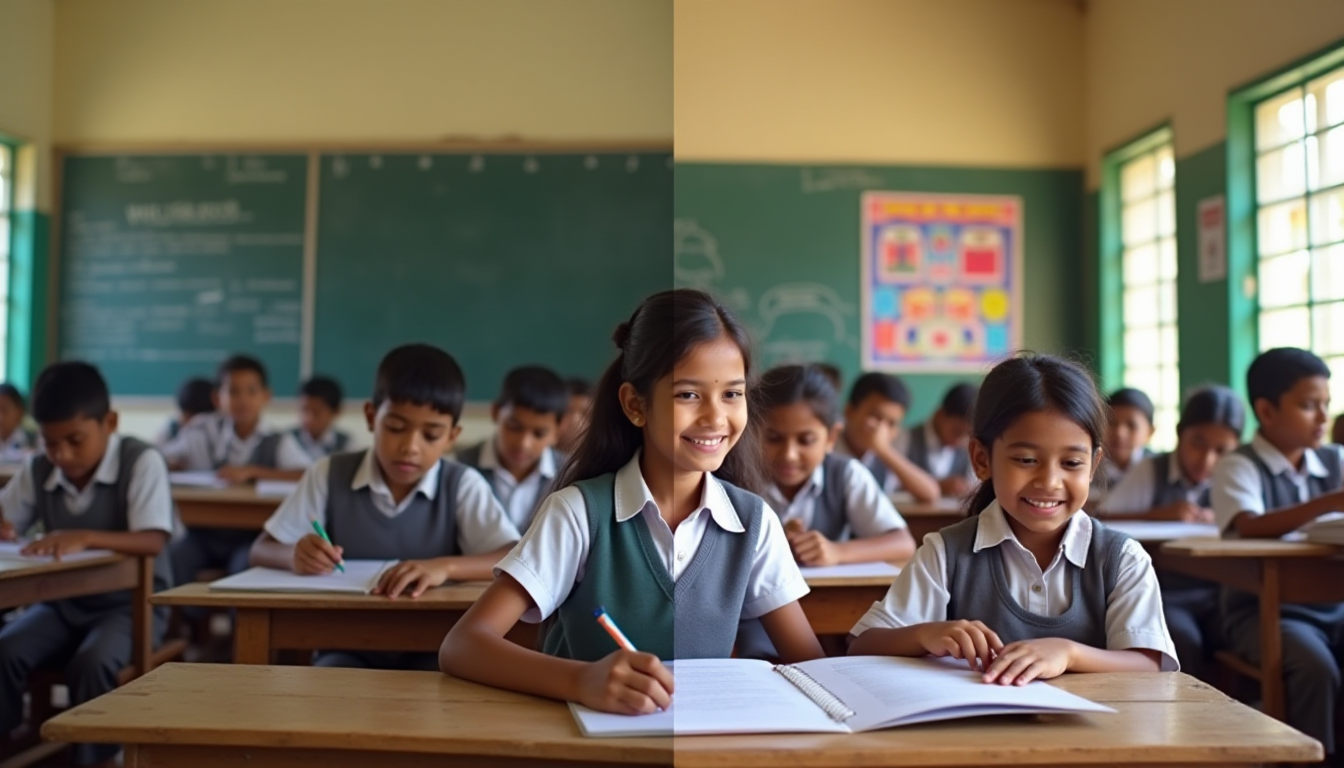It’s Time to Ask the Tough Questions About Education

Let’s be honest—we’ve been dancing around the real problems in our education system for far too long. We update syllabi, launch digital classrooms, hold workshops on “21st-century skills”… but rarely do we pause to ask: Why are we really doing what we’re doing?
Where Did All the “Why” Go?
When children are young, they’re naturally curious—“Why is the sky blue?”, “Why do I have to go to school?” But somewhere along the way, that habit of asking “why” gets stamped out. Not just from children, but from the adults running the system.
Ask a teacher why students are still memorising answers for a three-hour board exam, and the response is often:
“Because this is how we’ve always done it.”
“Because it’s what the CBSE/State Board expects.”
“Because marks matter.”
But do they? Do they really matter more than critical thinking, collaboration, or mental well-being?
Why are we still preparing students for a world that looks nothing like the one they’re entering?
Who Is the System Really Serving?
Let’s get uncomfortably honest. Is our system designed to benefit the average student in a government school in rural Bihar, or the one in an elite Delhi private school with an Olympic-size pool?
Is it serving the child with learning differences? The one who learns better through art or hands-on work? Or is it mostly benefiting those who are already privileged, already equipped to crack the system’s narrow definitions of “success”?
The truth is, our system rewards conformity, not creativity. Rote memory, not understanding. Silence, not questioning.
Change or Cosmetic Surgery?
We’ve introduced digital devices in classrooms. There are smart boards, coding classes, even AI modules in some schools. But if the teaching style still mirrors the chalk-and-talk methods from 40 years ago, is that real change or just cosmetic surgery?
Giving a child a tablet to watch a video lesson is not transformation—it’s substitution.
Real change would mean reshaping what we value, what we measure, and what we prioritise.
Knowledge vs. Skills: Why Are We Still Choosing Sides?
In countless debates, we pit academic knowledge against practical skills—as if a child has to choose between knowing the causes of the Revolt of 1857 and learning how to analyse data.
But the real world doesn’t operate like that. A good engineer needs to know principles and communicate clearly. A history graduate should understand context and how to use digital tools. Why are we forcing false choices?
Let’s Ask the Tough Questions
We don’t need perfect answers. But we desperately need to ask the right questions—questions that make us uncomfortable because they push us out of inertia.
Here are a few that every school leader, policymaker, and educator should be asking:
- If our system is so effective, why do millions still need tuitions outside school?
- If exams measure merit, why do they so often measure privilege?
- If students forget most of what they "learn" after the test, was it ever truly learning?
- If teaching is a “noble profession,” why are so many teachers underpaid, undertrained, and undervalued?
- If we claim to prepare children for the future, why does school still look like it’s preparing them for the past?
Let’s Imagine the Alternative
What if school wasn’t a place to “cover” the syllabus but a place to uncover curiosity?
What if students weren’t racing to complete worksheets but collaborating to solve real-world problems from their own communities?
What if assessments didn’t just test memory, but also character, creativity, and collaboration?
Bharat needs a new kind of classroom—not one defined by tech gadgets alone, but by the courage to question, experiment, and evolve.
Final Thought
Reforming education isn't just about better content or better gadgets. It’s about asking the uncomfortable, deeply necessary questions. Not just how to improve results, but how to redefine what “results” even mean.
Because if we don’t ask these questions now, we’ll keep replicating a system that prepares children for a world that no longer exists.
So let’s begin.
What’s your first tough question?





